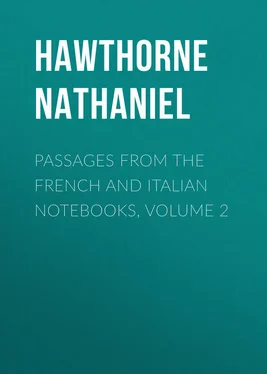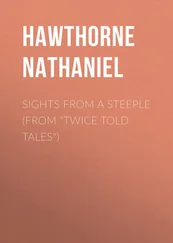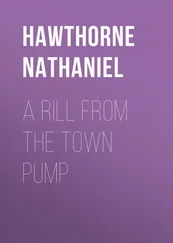Nathaniel Hawthorne - Passages from the French and Italian Notebooks, Volume 2
Здесь есть возможность читать онлайн «Nathaniel Hawthorne - Passages from the French and Italian Notebooks, Volume 2» — ознакомительный отрывок электронной книги совершенно бесплатно, а после прочтения отрывка купить полную версию. В некоторых случаях можно слушать аудио, скачать через торрент в формате fb2 и присутствует краткое содержание. Жанр: literature_19, foreign_antique, foreign_prose, на английском языке. Описание произведения, (предисловие) а так же отзывы посетителей доступны на портале библиотеки ЛибКат.
- Название:Passages from the French and Italian Notebooks, Volume 2
- Автор:
- Жанр:
- Год:неизвестен
- ISBN:нет данных
- Рейтинг книги:3 / 5. Голосов: 1
-
Избранное:Добавить в избранное
- Отзывы:
-
Ваша оценка:
- 60
- 1
- 2
- 3
- 4
- 5
Passages from the French and Italian Notebooks, Volume 2: краткое содержание, описание и аннотация
Предлагаем к чтению аннотацию, описание, краткое содержание или предисловие (зависит от того, что написал сам автор книги «Passages from the French and Italian Notebooks, Volume 2»). Если вы не нашли необходимую информацию о книге — напишите в комментариях, мы постараемся отыскать её.
Passages from the French and Italian Notebooks, Volume 2 — читать онлайн ознакомительный отрывок
Ниже представлен текст книги, разбитый по страницам. Система сохранения места последней прочитанной страницы, позволяет с удобством читать онлайн бесплатно книгу «Passages from the French and Italian Notebooks, Volume 2», без необходимости каждый раз заново искать на чём Вы остановились. Поставьте закладку, и сможете в любой момент перейти на страницу, на которой закончили чтение.
Интервал:
Закладка:
I saw the "Three Fates" of Michael Angelo, which were also being copied, as were many other of the best pictures. Miss Fanny Howorth, whom I met in the gallery, told me that to copy the "Madonna della Seggiola," application must be made five years beforehand, so many are the artists who aspire to copy it. Michael Angelo's Fates are three very grim and pitiless old women, who respectively spin, hold, and cut the thread of human destiny, all in a mood of sombre gloom, but with no more sympathy than if they had nothing to do with us. I remember seeing an etching of this when I was a child, and being struck, even then, with the terrible, stern, passionless severity, neither loving us nor hating us, that characterizes these ugly old women. If they were angry, or had the least spite against human kind, it would render them the more tolerable. They are a great work, containing and representing the very idea that makes a belief in fate such a cold torture to the human soul. God give me the sure belief in his Providence!
In a year's time, with the advantage of access to this magnificent gallery, I think I might come to have some little knowledge of pictures. At present I still know nothing; but am glad to find myself capable, at least, of loving one picture better than another. I cannot always "keep the heights I gain," however, and after admiring and being moved by a picture one day, it is within my experience to look at it the next as little moved as if it were a tavern-sign. It is pretty much the same with statuary; the same, too, with those pictured windows of the Duomo, which I described so rapturously a few days ago. I looked at them again the next morning, and thought they would have been hardly worthy of my eulogium, even had all the separate windows of the cathedral combined their narrow lights into one grand, resplendent, many-colored arch at the eastern end. It is a pity they are so narrow. England has many a great chancel-window that, though dimmer in its hues, dusty, and perhaps made up of heterogeneous fragments, eclipses these by its spacious breadth.
From the gallery, I went into the Boboli Gardens, which are contiguous to the palace; but found them too sunny for enjoyment. They seem to consist partly of a wilderness; but the portion into which I strayed was laid out with straight walks, lined with high box-hedges, along which there was only a narrow margin of shade. I saw an amphitheatre, with a wide sweep of marble seat around it, enclosing a grassy space, where, doubtless, the Medici may have witnessed splendid spectacles.
June 11th. – I paid another visit to the Uffizi gallery this morning, and found that the Venus is one of the things the charm of which does not diminish on better acquaintance. The world has not grown weary of her in all these ages; and mortal man may look on her with new delight from infancy to old age, and keep the memory of her, I should imagine, as one of the treasures of spiritual existence hereafter. Surely, it makes me more ready to believe in the high destinies of the human race, to think that this beautiful form is but nature's plan for all womankind, and that the nearer the actual woman approaches it, the more natural she is. I do not, and cannot think of her as a senseless image, but as a being that lives to gladden the world, incapable of decay and death; as young and fair to-day as she was three thousand years ago, and still to be young and fair as long as a beautiful thought shall require physical embodiment. I wonder how any sculptor has had the impertinence to aim at any other presentation of female beauty. I mean no disrespect to Gibson or Powers, or a hundred other men who people the world with nudities, all of which are abortions as compared with her; but I think the world would be all the richer if their Venuses, their Greek Slaves, their Eves, were burnt into quicklime, leaving us only this statue as our image of the beautiful. I observed to-day that the eyes of the statue are slightly hollowed out, in a peculiar way, so as to give them a look of depth and intelligence. She is a miracle. The sculptor must have wrought religiously, and have felt that something far beyond his own skill was working through his hands. I mean to leave off speaking of the Venus hereafter, in utter despair of saying what I wish; especially as the contemplation of the statue will refine and elevate my taste, and make it continually more difficult to express my sense of its excellence, as the perception of it grows upon one. If at any time I become less sensible of it, it will be my deterioration, not any defect in the statue.
I looked at many of the pictures, and found myself in a favorable mood for enjoying them. It seems to me that a work of art is entitled to credit for all that it makes us feel in our best moments; and we must judge of its merits by the impression it then makes, and not by the coldness and insensibility of our less genial moods.
After leaving the Uffizi Palace… I went into the Museum of Natural History, near the Pitti Palace. It is a very good collection of almost everything that Nature has made, – or exquisite copies of what she has made, – stones, shells, vegetables, insects, fishes, animals, man; the greatest wonders of the museum being some models in wax of all parts of the human frame. It is good to have the wholeness and summed-up beauty of woman in the memory, when looking at the details of her system as here displayed; for these last, to the natural eye, are by no means beautiful. But they are what belong only to our mortality. The beauty that makes them invisible is our immortal type, which we shall take away with us. Under glass cases, there were some singular and horribly truthful representations, in small wax figures, of a time of pestilence; the hasty burial, or tossing into one common sepulchre, of discolored corpses, – a very ugly piece of work, indeed. I think Murray says that these things were made for the Grand Duke Cosmo; and if so, they do him no credit, indicating something dark and morbid in his character.
June 13th. – We called at the Powers's yesterday morning to leave R – there for an hour or two to play with the children; and it being not yet quite time for the Pitti Palace, we stopped into the studio. Soon Mr. Powers made his appearance, in his dressing-gown and slippers and sculptor's cap, smoking a cigar… He was very cordial and pleasant, as I have always found him, and began immediately to be communicative about his own works, or any other subject that came up. There were two casts of the Venus de' Medici in the rooms, which he said were valuable in a commercial point of view, being genuine casts from the mould taken from the statue. He then gave us a quite unexpected but most interesting lecture on the Venus, demonstrating it, as he proceeded, by reference to the points which he criticised. The figure, he seemed to allow, was admirable, though I think he hardly classes it so high as his own Greek Slave or Eva; but the face, he began with saying, was that of an idiot. Then, leaning on the pedestal of the cast, he continued, "It is rather a bold thing to say, isn't it, that the sculptor of the Venus de' Medici did not know what he was about?"
Truly, it appeared to me so; but Powers went on remorselessly, and showed, in the first place, that the eye was not like any eye that Nature ever made; and, indeed, being examined closely, and abstracted from the rest of the face, it has a very queer look, – less like a human eye than a half-worn buttonhole! Then he attacked the ear, which, he affirmed and demonstrated, was placed a good deal too low on the head, thereby giving an artificial and monstrous height to the portion of the head above it. The forehead met with no better treatment in his hands, and as to the mouth, it was altogether wrong, as well in its general make as in such niceties as the junction of the skin of the lips to the common skin around them. In a word, the poor face was battered all to pieces and utterly demolished; nor was it possible to doubt or question that it fell by its own demerits. All that could be urged in its defence – and even that I did not urge – being that this very face had affected me, only the day before, with a sense of higher beauty and intelligence than I had ever then received from sculpture, and that its expression seemed to accord with that of the whole figure, as if it were the sweetest note of the same music. There must be something in this; the sculptor disregarded technicalities, and the imitation of actual nature, the better to produce the effect which he really does produce, in somewhat the same way as a painter works his magical illusions by touches that have no relation to the truth if looked at from the wrong point of view. But Powers considers it certain that the antique sculptor had bestowed all his care on the study of the human figure, and really did not know how to make a face. I myself used to think that the face was a much less important thing with the Greeks, among whom the entire beauty of the form was familiarly seen, than with ourselves, who allow no other nudity.
Читать дальшеИнтервал:
Закладка:
Похожие книги на «Passages from the French and Italian Notebooks, Volume 2»
Представляем Вашему вниманию похожие книги на «Passages from the French and Italian Notebooks, Volume 2» списком для выбора. Мы отобрали схожую по названию и смыслу литературу в надежде предоставить читателям больше вариантов отыскать новые, интересные, ещё непрочитанные произведения.
Обсуждение, отзывы о книге «Passages from the French and Italian Notebooks, Volume 2» и просто собственные мнения читателей. Оставьте ваши комментарии, напишите, что Вы думаете о произведении, его смысле или главных героях. Укажите что конкретно понравилось, а что нет, и почему Вы так считаете.












